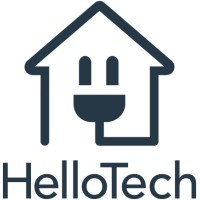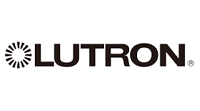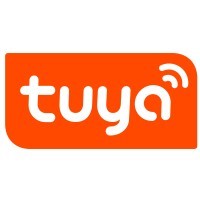Yes, smart home systems are meant to be accessed from a variety of devices and platforms. Users can manage and monitor their home equipment, such as lights, security cameras, and thermostats, via a central hub or app on their smartphones, tablets, or laptops. These systems are often interoperable with a variety of platforms, including iOS and Android, allowing customers to view and operate their homes remotely from any device.
List of 20 Best Smart Home System
Delta Controls is solution for creating intelligent buildings that prioritize efficiency, comfort, and energy savings. Our wide range of native BACnet products, including HVAC, lighting management, and access control systems, offers state-of-the-art...Read More Delta Controls
OnTech - the premier provider of managed IT solutions for household services. Our comprehensive packages provide all the benefits of a smart home at an affordable price. For over 20 years, we have been a trusted name in the industry with over 10,000...Read More OnTech
HelloTech offers the ultimate in-home and online tech support. Our range of services include computer repair, TV mounting, and smart home installations, all at affordable rates. With our same-day on-site assistance and round-the-clock online support,...Read More HelloTech
Puls is the premier solution for streamlining home repairs. Our cutting-edge platform seamlessly connects you with professional technicians in your area, equipped to handle everything from fixing your electronics to installing your new garage door. W...Read More Puls
Angi – solution for all your home maintenance and renovation needs. Our innovative home tools make project management a breeze, providing you with peace of mind through comprehensive project coverage and limited damage protection upon booking...Read More Angi
OpenHAB is the leading customizable smart home software solution, designed to prioritize user security and provide complete control over their system. With openHAB, your data remains confidential and remote access is only granted as needed. The softw...Read More OpenHAB
Lutron is a trusted name in home automation, providing a range of solutions perfect for any home and budget. From switchboards to dimmers, sensors, and fan controls, our smart products make it easy to transform your living space into a more efficient...Read More Lutron
Welcome to Tuya Smart solution for seamlessly connecting and controlling a diverse range of smart devices to create intelligent scenarios in your home. With our comprehensive cloud integration services and robust hardware development tools, you can e...Read More Tuya Smart
Philips Hue is a pioneer in the realm of intelligent lighting. Our diverse lineup comprises of smart bulbs, light strips, table lamps, and outdoor lighting. Effortlessly manage all connected devices in your household with the Hue Bridge app, acting a...Read More Philips Hue
Ecobee offers cutting-edge home automation solutions, featuring a smart thermostat, camera, and door sensors. These innovative products are designed to integrate seamlessly and elevate your homes efficiency and convenience. With Ecobee, effortlessly...Read More Ecobee
Savant is a provider of home management and automation solutions. With the help of cutting-edge mobile technology, Savant offers an extensive array of smart home systems to support all your devices. From home theater and thermostat control, to motori...Read More Savant
Crestron is software that simplifies green and sustainable practices by merging control of multiple building systems into one platform. This eliminates the need for multiple software programs, increasing efficiency and convenience. By effectively man...Read More Crestron
Plume - the leading SaaS company for intelligent WiFi solutions tailored for individuals and small businesses. Our top-notch speed, reliable performance, and 24/7 customer support make us the ultimate choice for your internet needs. Choose Plume to e...Read More Plume
SimpliSafe is an easy-to-install security system that offers no-contract options and round-the-clock professional monitoring. With affordable plans, you can protect your home from dangers like carbon monoxide, fires, and floods. Take charge of your h...Read More SimpliSafe
Axis Communications is a network-based software offering a cost-effective and streamlined solution for all your security needs. With IP PoE connectivity and compatibility with your existing network, it eliminates the hassle of complex wiring and cent...Read More Axis Communications
ABB Smart Home solution for a modern, efficient, and stylish living experience in residential buildings. Our innovative software effortlessly manages functions such as blinds, lighting, heating, air-conditioning, and door communication, all aimed at...Read More ABB Smart Home
ASSA ABLOY, a leading provider of door opening solutions across industries. Our comprehensive range includes identification technology, entrance automation, hotel security, and access management. Our commitment to innovation is evident in our integra...Read More Assa Abloy
Honeywell is a control access software - WIN-PAK. Elevate your security measures and simplify access control with this all-encompassing platform. Effortlessly monitor and manage your entire process flow and surveillance through its intuitive dashboar...Read More Honeywell
Xfinity Self Protection - an advanced home security system. Stay connected to your home at all times with the Xfinity app, available on your mobile device or TV via Voice Remote. Be instantly notified of any motion detected by the camera, including p...Read More Xfinity
Siemens is ahighly adaptable and versatile online management tool for the industry. It guarantees a dependable solution with full compliance. With advanced features such as PLM and MOM integration, it streamlines processes and helps save valuable tim...Read More Siemens
Learn More About Smart Home System
- What Is Smart Home System?
- What Are The Recent Trends In Smart Home System?
- Benefits Of Using Smart Home System
- Important Factors To Consider While Purchasing Smart Home System?
- What Are The Key Features To Look For In Smart Home System?
- Why Do Businesses Need Smart Home System?
- How Much Time Is Required To Implement Smart Home System?
- What Is The Level Of Customization Available In Smart Home System?
- Which Industries Can Benefit The Most From Smart Home System?
- Conclusion
What Is Smart Home System?
A smart home system is a collection of interconnected gadgets, appliances, and systems that may be managed via a central hub or a mobile app. These gadgets are outfitted with sensors, CPUs, and networking capabilities, allowing them to communicate with one another and the user. A smart home system aims to automate and improve several elements of daily life, such as security, energy efficiency, and convenience.
One of the most important components of a smart home system is the central hub, which serves as the brain of the system. This hub connects to the internet and acts as a control center for all of the linked devices. It also enables users to access and control the system remotely using a mobile app. A smart home system consists of a hub and a variety of devices such as smart thermostats, cameras, lights, door locks, and even kitchen appliances.
These devices are equipped with sensors that collect data and interact with the hub, enabling automation and remote control. One of the primary benefits of a smart home system is convenience. Users can save time and effort by controlling and automating a variety of functions, such as regulating the thermostat or turning on lights. Smart home devices can also help to improve energy efficiency by automatically adjusting settings depending on usage trends and behavior.
Security is another critical component of a smart home system. Users may rest assured that their home is secure because they can remotely monitor and control home security cameras, door locks, and alarm systems. When choosing a smart home system, make sure your gadgets are compatible with the central hub and look for extra features like voice control or compatibility with virtual assistants such as Amazon Alexa or Google Home.
Smart home systems can vary in price, so it's critical to set a budget and select a system that suits your individual requirements and preferences. Investing in a smart home system can enhance your house's convenience, energy efficiency, and security while also incorporating futuristic technology. With so many alternatives on the market, it's critical to conduct thorough research and examine your individual requirements to select the best smart home system for you.
What Are The Recent Trends In Smart Home System?
Smart home systems have grown in popularity in recent years, as more homeowners look to use technology to simplify and enhance their living spaces. As demand for smart home systems increases, so do the trends and innovations that surround them.
Let's explore, we'll look at the most recent trends in smart home systems to help you make an informed decision about which system is best for your house.
1. Integration & Compatibility: One of the most notable trends in smart home systems is an emphasis on integration and compatibility. Homeowners want technologies that interact effortlessly and can be handled from a central hub or their cellphones. The advent of voice-controlled assistants, such as Amazon's Alexa and Google Home, has raised demand for smart home gadgets that work with these platforms.
2. Expansion Of Basic Functions: Early smart home systems were primarily concerned with basic operations like lighting, temperature control, and security. However, current trends indicate a desire for more advanced capabilities, such as energy management, water usage monitoring, and even air quality control. This upgrade provides homeowners with a more comprehensive perspective of their home's activities, resulting in more efficient and cost-effective resource management.
3. Smart Home Security: Smart home security is a key priority for homeowners, as evidenced by current developments in smart home systems. From video doorbells to smart locks and cameras, homeowners can now remotely monitor and safeguard their houses using their smartphones. Many systems have advanced features like facial recognition and AI-powered alarms, which add an added degree of security.
4. Energy Efficiency: With an increasing emphasis on sustainability and energy conservation, it's no surprise that energy efficiency has become a hot topic in smart home systems. These devices enable homeowners to monitor their energy consumption and make modifications to eliminate waste and lower their electricity bills. Some systems also allow for integration with renewable energy sources, significantly lowering the home's carbon impact.
5. DIY Installation And Ease Of Use: As smart home devices become more accessible and affordable, there has been a shift toward DIY installation and simple interfaces. Homeowners may now set up their systems without the need for professional installation, which saves them time and money. Furthermore, many systems include intuitive apps and voice-controlled functions, making them simple to use for all members of the family.
Benefits Of Using Smart Home System
Smart home systems, often known as home automation systems, provide a variety of benefits to homeowners. These systems use technology to automate different parts of a house, such as lighting, heating, security, and entertainment, making daily life easier and more efficient.
Here are some of the primary advantages of using a smart home system:
1. Convenience: One of the primary benefits of a smart home system is convenience. With a few clicks on your smartphone, you can control and monitor your house from any location. You no longer need to worry about forgetting to turn off lights or appliances because you can do so remotely.
2. Energy Efficiency: Smart home technologies reduce energy use by allowing homeowners to monitor and adjust their usage. They may schedule lights and appliances, modify thermostat settings based on their lifestyle, and receive energy consumption notifications, all of which help them save money on their utility costs.
3. Improved Security: Smart home systems provide advanced security features like smart locks, security cameras, and motion sensors that can be accessed and operated remotely. This gives homeowners peace of mind and more control over the security of their home.
4. Customisation: Smart home systems provide a great degree of customisation, allowing homeowners to adjust the system to their unique requirements and preferences. They may design personalized timetables, set up settings for specific situations, and combine several gadgets so that they operate flawlessly.
5. Remote Monitoring: A smart home system allows homeowners to monitor their home even when they are away. They may monitor the condition of their security system, receive notifications if there is any odd activity, or if sensors detect a fire or carbon monoxide, and take appropriate action remotely.
6. Home Automation: Smart home technologies may automate daily operations, making them easier and more efficient. For example, you may program your coffee machine to begin brewing at a specified time each morning or have your lights switch on automatically when you enter a room.
7. Home Value: A smart home system can boost the value of your property and make it more appealing to prospective purchasers. With the increasing popularity of smart home technology, having a system in place can help your home stand out in the real estate market.
Important Factors To Consider While Purchasing Smart Home System?
When selecting a smart home system, there are various variables to consider to ensure you make the best choice for your house and lifestyle.
Here are some crucial considerations to consider while searching for a smart home system:
1. Compatibility: The first and most important aspect to examine is compatibility. Because not all smart home gadgets and systems are designed to operate together, you must ensure that the system you select is compatible with the products you already possess or intend to purchase in the future. This will ensure that your smart home gadgets work together seamlessly and efficiently.
2. Budget: As with any purchase, your budget is an important factor in deciding which smart home system is best for you. Make careful to set and stick to a budget while shopping. Keep in mind that, while certain systems may have a larger initial cost, they may provide long-term benefits in terms of energy efficiency and ease.
3. Needs vs. Wants: It's easy to become overwhelmed by all of the fascinating features and gadgets that come with a smart home system, but it's critical to focus on your specific needs and prioritize them over your wants. Determine which features are critical for your lifestyle and house, and then select a system that fulfills those requirements rather than one that merely has the most bells and whistles.
4. Control Options: Another essential consideration is how you want to manage your smart home gadgets. Do you prefer a voice-controlled system via a virtual assistant such as Amazon Alexa or Google Home? Do you prefer a centralized control system, such as a smartphone app? Consider your preferences and select a system with the control options that best meet your requirements.
5. Privacy And Security: As the number of IoT (Internet of Things) devices grows, privacy and security considerations for smart home systems become more essential. Before making a purchase, examine the system's privacy and security safeguards to guarantee they meet your personal expectations.
6. Expansion: As your needs and technology change, you may wish to add more devices to your smart home system. As a result, it is critical to assess the system's expandability before making a purchase. Check to see if the system can support additional devices and has future expansion potential.
7. Customer Support: Because smart home systems are complicated, they may require technical assistance on occasion. As a result, it is critical to examine the level of customer assistance provided by the system's manufacturer. Look for solutions that provide dependable, accessible, and timely customer assistance to assist you with any issues that may emerge.
Keeping these crucial elements in mind will allow you to make an informed decision when selecting the best smart home system for your needs and preferences. Remember to conduct research, compare, and read reviews to ensure you get the best system for your home.
What Are The Key Features To Look For In Smart Home System?
A smart home system is a network of networked devices that automates and controls different aspects of a home, including lighting, security, and temperature. With so many alternatives available on the market, it can be difficult for buyers to select the best smart home system for their needs. So, what are the most important things to consider when selecting a smart home system? Let's go exploring.
1. Device Compatibility: One of the most important features to look for in a smart home system is its ability to work with various devices. You want to ensure that the system works with the devices you already own or plan to acquire. Before purchasing a smart home system, it's important to verify for compatibility as some are brand-specific.
2. Connectivity: The connectivity of a smart home system is critical to its successful operation. The majority of systems use Wi-Fi, Bluetooth, or Zigbee to communicate between devices. It is critical to select a system with a dependable and stable connection to guarantee that your gadgets function properly.
3. Control Options: The finest smart home systems have several ways to control your devices, including a mobile app, voice commands, and a central hub. Consider which control option best matches your lifestyle and select a system that includes it.
4. Customization: A decent smart home system should let you adjust and tailor your automation settings to your liking. This feature allows you more freedom and control over your gadgets, making your home really smart.
5. Security: Because your smart home system will be connected to the internet, security is an important factor to consider. Look for solutions that provide modern security features like encryption and two-factor authentication to secure your home from cyber threats.
6. Scalability: A smart home system that allows you to add new devices and expand your network is a wise investment. It allows you to modify and improve your home automation without having to completely replace the system.
7. User-Friendly Setup And Interface: Installing a smart home system should be simple. Look for solutions that have thorough instructions and a simple interface for operating your gadgets.
8. Customer Support: Smart home systems, like any other technology, can have technical challenges. A system that provides dependable customer service, such as 24/7 helplines or online chat assistance, can save you a lot of bother if you run into any problems.
Choosing the proper smart home system can significantly improve your daily life and provide ease, comfort, and security in your house. Keep these important elements in mind as you shop for a smart home system, and you'll be well on your way to establishing a genuinely smart house.
Why Do Businesses Need Smart Home System?
Businesses require smart home systems for a variety of reasons, including increased efficiency, cost savings, and enhanced security. With technological advancements, smart home systems now provide an integrated and automated solution for businesses to run their operations easily.
Let's explore, we will look at the top reasons why businesses need a smart home system and the benefits it can provide to their operations.
1. Streamlined Operations: Smart home systems enable the centralization and automation of various functions, making it easier for enterprises to run their everyday operations. This means that businesses may control and monitor several aspects of their office space or building, such as lighting, temperature, and security, using a single platform. Businesses can save time and costs by streamlining these activities, freeing them up to focus on other important responsibilities.
2. Improved Efficiency: Efficiency is critical for any organization, and smart home solutions can help in a variety of ways. Automating tasks allows firms to remove human error and save time, resulting in higher production. Furthermore, these systems may modify settings such as lighting and temperature in response to occupancy, decreasing energy waste and maximizing resource consumption.
3. Cost Savings: Implementing a smart home system can also help businesses save money. Businesses may dramatically cut their energy use, as well as their electricity expenses, by automating lighting, heating, and cooling. Furthermore, these systems may identify and inform business owners to any maintenance difficulties, avoiding very costly harm.
4. Enhanced Security Security is a significant responsibility for businesses, and smart home systems provide advanced functionality to protect their properties. These systems can include security cameras, motion sensors, and door locks, allowing organizations to monitor and secure their assets remotely. In addition, businesses can receive real-time notifications for any questionable activity, giving them piece of mind.
5. Integration With Other Devices. Most smart home systems work with other smart devices, including voice assistants, smartphones, and PCs. This implies that firms may oversee and manage their operations across different platforms, giving them greater flexibility and access. It also facilitates connection with other office systems, such as security and employee management software.
How Much Time Is Required To Implement Smart Home System?
The time necessary to establish a smart home system varies depending on various factors, including the size of your home, the system's complexity, and the level of customization desired. In general, the procedure can take anywhere from a few hours to many days. The first step in creating a smart home system is to determine your individual requirements and preferences.
Working with a professional installation is one option, but you may also research and select compatible products yourself. Depending on the complexity of the system and the number of devices to be integrated, this stage might take anywhere from a few hours to a day. Once you've decided on the items and components for your smart home system, the installation procedure may begin.
A basic system that connects smart devices like as lighting, thermostats, and security cameras can normally be installed in one day. However, if you want to include more advanced capabilities like as voice control or a centralized hub, the installation process may take a few days. After installation, the next step is to configure and personalize the system to your liking. This may include making schedules, enabling automation and alarms, and personalizing settings for each device. The length of time necessary for this phase is primarily determined by your desired level of customization and personalization.
What Is The Level Of Customization Available In Smart Home System?
Smart home systems are fast gaining popularity because they bring convenience, energy efficiency, and security to our daily lives. These systems are made up of networked gadgets and appliances that may be managed remotely via a central hub or a smartphone app. However, one important factor that distinguishes different smart home systems is the level of flexibility they provide.
When determining the level of customisation accessible in smart home systems, two factors must be considered: hardware and software. In terms of hardware, most smart home systems support a wide range of devices and appliances that can be incorporated into the system, including smart lighting, thermostats, locks, cameras, and more. This allows purchasers to select the specific devices they want to include in their smart home.
The level of software modification is determined by the type of system chosen. There are proprietary systems, such as Amazon Alexa or Google Assistant, that provide limited customization options, primarily through voice commands and pre-set routines. On the other hand, more powerful systems allow for greater levels of customization, such as setting up specific triggers and actions for individual devices and building bespoke schedules.
Furthermore, some smart home systems support third-party integrations, which allow users to link their smart home to other devices and services, increasing their personalization options. For example, you may connect your smart home to Spotify so that your favorite song starts playing as soon as you come in the door. It is important to note that the level of customisation accessible in smart home systems is also determined by the buyer's technical expertise. More extensive adaptations may necessitate a certain amount of technical expertise, whilst simpler solutions may be easier to set up and customize for those with no technological background.
Which Industries Can Benefit The Most From Smart Home System?
Smart home systems are becoming increasingly popular in a variety of industries due to their multiple benefits and convenience.
Let's take a closer look at which industries will profit the most from smart home systems.
1. Real Estate: Smart home systems are an excellent selling feature for real estate properties. Home buyers are drawn to the concept of living in a fully automated and linked home. This technology not only enhances the property's appearance, but also boosts its worth.
2. Hospitality: Hotels and other hospitality firms can use smart home technologies to improve their customers' experiences. Smart home technology may provide guests with a more personalized and easy stay by controlling room temperature and lighting as well as managing entertainment systems.
3. Healthcare: Smart home systems can be utilized in healthcare settings to monitor and protect elderly or disabled individuals. These technologies can also monitor their everyday activities and warn healthcare providers in the event of an emergency.
4. Retail: Smart home systems can help retailers manage inventories and track customer behavior in their locations. Retailers can make smart product placement and marketing decisions by examining data from these platforms.
5. Education: Smart home technologies can help to create a more effective learning environment at schools and institutions. These devices can assist in managing classroom activity, regulating lighting and temperature, and even providing interactive teaching resources.
6. Construction: Smart home technologies are becoming a common part in new construction projects. Builders can incorporate these systems into the construction phase, making it easier and less expensive for homeowners to have them installed.
7. Energy And Utility: Smart home technologies allow energy and utility companies to monitor and regulate energy usage in homes. This can help to reduce energy use and promote environmentally friendly living.
Conclusion
Finally, investing in a smart home system can significantly improve your daily life while also increasing your house's efficiency and convenience. A smart home system provides a degree of convenience and control that traditional homes cannot equal, as it allows you to control numerous components of your home remotely and personalize settings to suit your lifestyle.
When deciding which smart home system to buy, you need have a clear grasp of your requirements and budget. Consider the most crucial features and functionalities for you, as well as any additional devices or services that may require integration. It is also critical to investigate and evaluate various companies and their offerings, taking into account elements like as consumer feedback, warranty coverage, and interoperability with other devices.
Once you've made your pick, follow the manufacturer's installation instructions or contact an expert to ensure correct setup and performance. Don't forget to become acquainted with the accompanying smartphone app or smart home hub for seamless control and convenience. Overall, a smart home system is an excellent investment that may significantly increase your house's functionality, security, and energy efficiency. With careful research and analysis, you may choose the ideal smart home system to meet your requirements and improve your daily life.
Smart Home System FAQ's
Can Smart Home System Be Accessed Across Multiple Devices And Platforms?
Is Smart Home System Future-Proof And Adaptable To Emerging Technologies Like AI, Blockchain Or IoT?
Yes, a Smart Home System is intended to be future-proof and adaptable to new technologies like AI, blockchain, and IoT. Using configurable and open-source platforms, a Smart Home System can quickly connect with new technologies as they become available. This guarantees that your property is up to date with the latest innovations, making it an excellent long-term investment.
Is There A Free Trial Offered To Assess Smart Home System Before Committing?
Yes, many smart home system companies allow free trials for a set length of time, typically 14 to 30 days. This allows clients to evaluate the system and its features before making a purchase. Some suppliers may also provide a money-back guarantee if the consumer is dissatisfied with the system. It's usually a good idea to try out a smart home system for free before making a purchase.
Does Smart Home System Offer Data Security Features And Meet Regulatory Compliance Standards?
Yes, most smart home systems have data security safeguards that adhere to regulatory norms. These systems use modern encryption methods to protect your personal information and adhere to industry regulations. They also include methods like two-factor authentication and regular software updates to keep your data safe at all times. This gives homeowners piece of mind and ensures that their privacy is respected.
Can Smart Home System Integrate Seamlessly With Existing Tools And Platforms?
Yes, one of the primary advantages of a smart home system is its ability to work seamlessly with existing tools and platforms. A smart home system may simply interact with your existing gadgets, whether they be smart devices, home security systems, or voice assistants. This enables a more simplified and efficient home automation experience, making your life simpler and more connected.






















